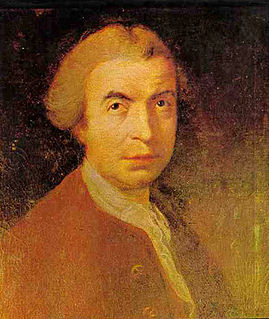A Quote by Isaac Newton
Our present work sets forth mathematical principles of philosophy. For the basic problem of philosophy seems to be to discover the forces of nature from the phenomena of motions and then to demonstrate the other phenomena from these forces. It is to these ends that the general propositions in books 1 and 2 are directed, while in book 3 our explanation of the system of the world illustrates these propositions.
Related Quotes
Our design, not respecting arts, but philosophy, and our subject, not manual, but natural powers, we consider chiefly those things which relate to gravity, levity, elastic force, the resistance of fluids, and the like forces, whether attractive or impulsive; and therefore we offer this work as mathematical principles of philosophy; for all the difficulty of philosophy seems to consist in this from the phenomena of motions to investigate the forces of nature, and then from these forces to demonstrate the other phenomena.
In experimental philosophy, we are to look upon propositions inferred by general induction from phenomena as accurately or very nearly true, notwithstanding any contrary hypotheses that may be imagined, till such time as other phenomena occur by which they may either be made more accurate or liable to exceptions.
Philosophy aims at the logical clarification of thoughts. Philosophy is not a body of doctrine but an activity. A philosophical work consists essentially of elucidations. Philosophy does not result in 'philosophical propositions', but rather in the clarification of propositions. Without philosophy thoughts are, as it were, cloudy and indistinct: its task is to make them clear and to give them sharp boundaries.
We are so far from knowing all the forces of nature and their various modes of action that it would be unworthy of the philosopher to deny phenomena simply because they are inexplicable at the present state of our knowledge. The more difficult it is to acknowledge their existence, the greater the care with which we must study these phenomena.
There are different interpretations of the problem of universals. I understand it as the problem of giving the truthmakers of propositions to the effect that a certain particular is such and such, e.g. propositions like 'this rose is red'. Others have interpreted it as a problem about the ontological commitments of such propositions or a problem about what those propositions mean.
Mathematics is a logical method. . . . Mathematical propositions express no thoughts. In life it is never a mathematical proposition which we need, but we use mathematical propositions only in order to infer from propositions which do not belong to mathematics to others which equally do not belong to mathematics.
Our alleged facts might be true in all kinds of ways without contradicting any truth already known. I will dwell now on only one possible line of explanation, - not that I see any way of elucidating all the new phenomena I regard as genuine, but because it seems probable I may shed a light on some of those phenomena. All the phenomena of the universe are presumably in some way continuous; and certain facts, plucked as it were from the very heart of nature, are likely to be of use in our gradual discovery of facts which lie deeper still.
I intend Deaths in Venice to contribute both to literary criticism and to philosophy. But it's not "strict philosophy" in the sense of arguing for specific theses. As I remark, there's a style of philosophy - present in writers from Plato to Rawls - that invites readers to consider a certain class of phenomena in a new way. In the book, I associate this, in particular, with my good friend, the eminent philosopher of science, Nancy Cartwright, who practices it extremely skilfully.
I have not been able to discover the cause of those properties of gravity from phenomena, and I frame no hypotheses; for whatever is not deduced from the phenomena is to be called a hypothesis, and hypotheses, whether metaphysical or physical, whether of occult qualities or mechanical, have no place in experimental philosophy.
In other words, the propositions of philosophy are not factual, but linguistic in character - that is, they do not describe the behaviour of physical, or even mental, objects; they express definitions, or the formal consequences of definitions. Accordingly we may say that philosophy is a department of logic. For we will see that the characteristic mark of a purely logical enquiry, is that it is concerned with the formal consequences of our definitions and not with questions of empirical fact.


































